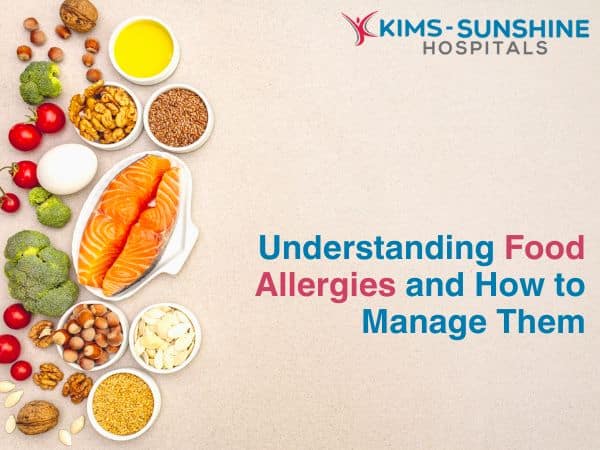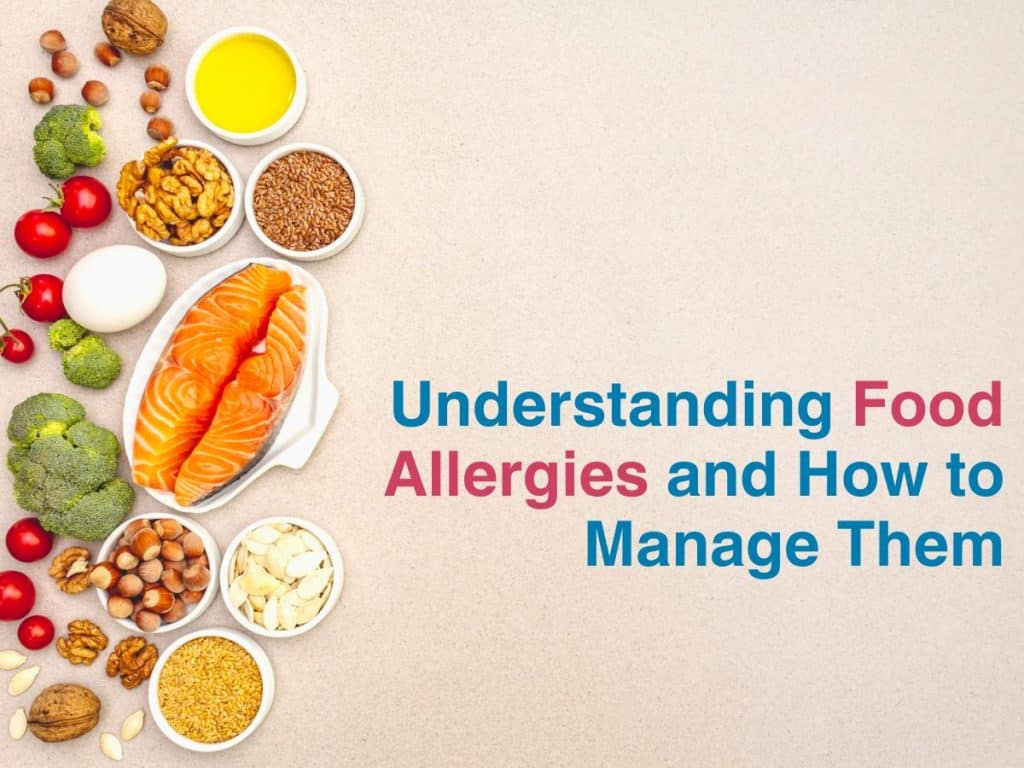
Understanding Food Allergies and How to Manage Them

Food allergies are very common and affect millions of people worldwide.
Understanding how to identify, manage, and treat food allergies is crucial for maintaining health and quality of life.
This blog explores how to identify common food allergy symptoms, manage severe food allergies in children, avoid cross-contamination, follow dietary guidelines, and more.
Identifying Common Food Allergy Symptoms
Food allergies can present a wide range of symptoms, which can appear within minutes to hours after consuming the allergen. Common symptoms include:
- Hives: Red, itchy welts on the skin.
- Swelling: Especially of the lips, face, tongue, and throat.
- Respiratory issues: Wheezing, nasal congestion, or trouble breathing.
- Gastrointestinal symptoms: Nausea, vomiting, diarrhea, and abdominal pain.
- Anaphylaxis: A severe, potentially life-threatening reaction characterized by difficulty breathing, a drop in blood pressure, and loss of consciousness.
Managing Severe Food Allergies in Children
Children are particularly vulnerable to food allergies. Effective management includes:
- Education: Teach children about their allergies and safe food practices.
- Emergency Plan: Have an action plan in place, including the use of epinephrine auto-injectors.
- Communication: Inform caregivers, teachers, and friends about the child’s allergies and emergency procedures.
- Regular Check-ups: Ensure regular visits to an allergist for updated advice and monitoring.
Best Practices for Avoiding Cross-Contamination with Food Allergens
Avoiding cross-contamination is vital for those with food allergies. Best practices include:
- Separate Cooking Tools: Use separate utensils, cutting boards, and pans for allergen-free foods.
- Clean Thoroughly: Wash hands, surfaces, and tools thoroughly after handling allergens.
- Read Labels: Always check ingredient lists and look for allergen warnings.
- Educate Family and Friends: Ensure everyone understands how to prevent cross-contamination.
Dietary Guidelines for People with Multiple Food Allergies
Managing multiple food allergies can be challenging, but following these guidelines can help:
- Diversify Diet: Focus on safe foods to ensure nutritional balance.
- Consult a Dietitian: Get personalized advice to meet dietary needs.
- Plan Meals: Prepare meals ahead to avoid last-minute decisions.
- Use Substitutes: Find safe alternatives for common allergens.
Emergency Action Plan for Anaphylactic Reactions
Having an emergency action plan for anaphylaxis is crucial:
- Recognize Symptoms: Know the signs of anaphylaxis, such as swelling, difficulty breathing, and dizziness.
- Administer Epinephrine: Use an epinephrine auto-injector immediately if symptoms occur.
- Call Emergency Services: Seek immediate medical help even after administering epinephrine.
- Follow Up: Visit a doctor for further evaluation and monitoring.
Food Allergy Testing and Diagnosis Options
Various tests are available to diagnose food allergies:
- Skin Prick Test: Small amounts of allergens are pricked into the skin to observe reactions.
- Blood Tests: Measure the presence of specific IgE antibodies to allergens.
- Elimination Diet: Remove suspected allergens from the diet and gradually reintroduce them while monitoring symptoms.
- Oral Food Challenge: Supervised consumption of allergens to observe reactions.
How to Read Food Labels for Hidden Allergens
Reading food labels is essential to avoid allergens:
- Identify Keywords: Look for allergen warnings and ingredient lists.
- Understand Terms: Learn common names for allergens (e.g., casein for milk).
- Check Every Time: Ingredients can change, so read labels even for familiar products.
Natural Remedies for Food Allergy Relief
While avoiding allergens is key, some natural remedies may provide relief from mild symptoms:
- Probiotics: May help balance gut bacteria and improve immune response.
- Quercetin: A natural antihistamine found in foods like apples and onions.
- Vitamin C: An antioxidant that may reduce histamine levels.
The Role of Probiotics in Managing Food Allergies
Probiotics, beneficial bacteria found in foods like yogurt and supplements, may play a role in managing food allergies by:
- Improving Gut Health: Enhancing the balance of gut microbiota.
- Modulating Immune Response: Potentially reducing allergic reactions.
- Supporting Digestive Health: Alleviating gastrointestinal symptoms associated with food allergies.
Tips for Dining Out with Food Allergies Safely
Dining out with food allergies requires careful planning:
- Research Restaurants: Choose establishments with good allergy protocols.
- Inform Staff: Clearly communicate your allergies to the server and chef.
- Ask Questions: Inquire about ingredients, cooking methods, and cross-contamination.
- Carry Medication: Always have your epinephrine auto-injector and other medications on hand.
Frequently Asked Questions

Ms. Bhavana K.
M.Sc (Nutrition & Dietetics)
HOD – Chief Dietician






